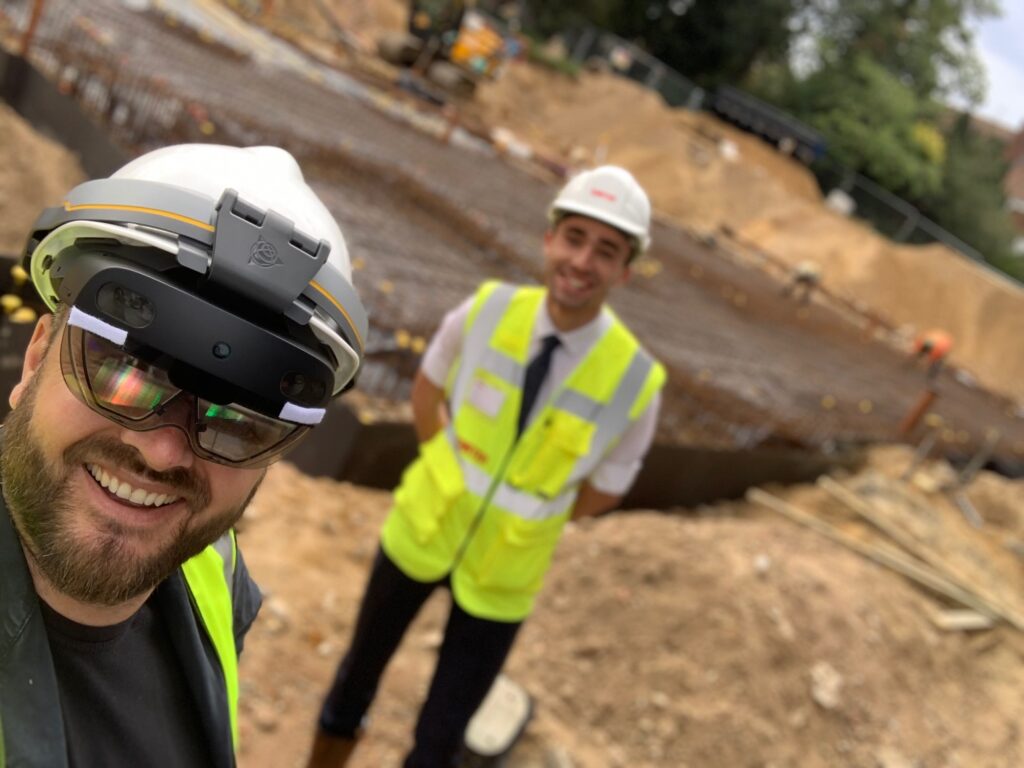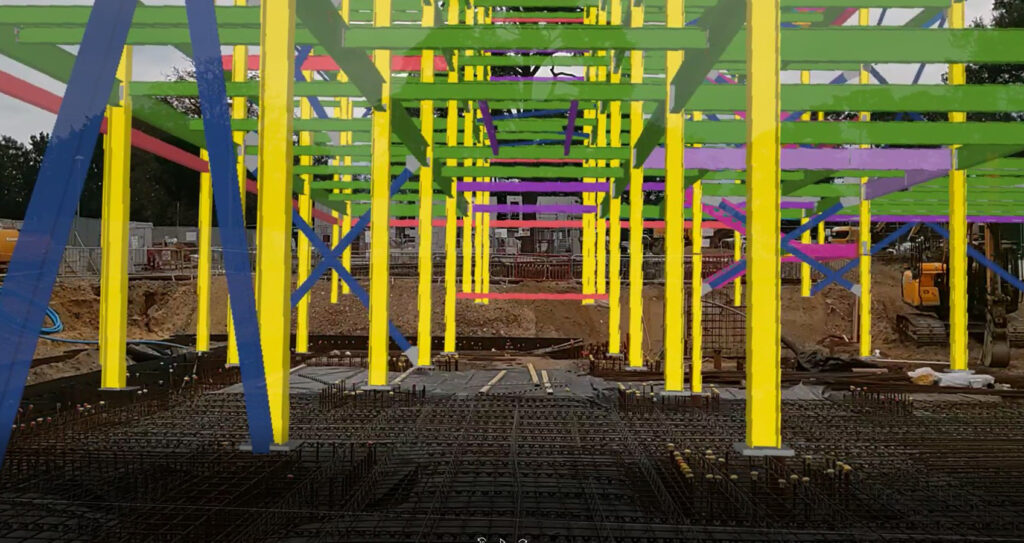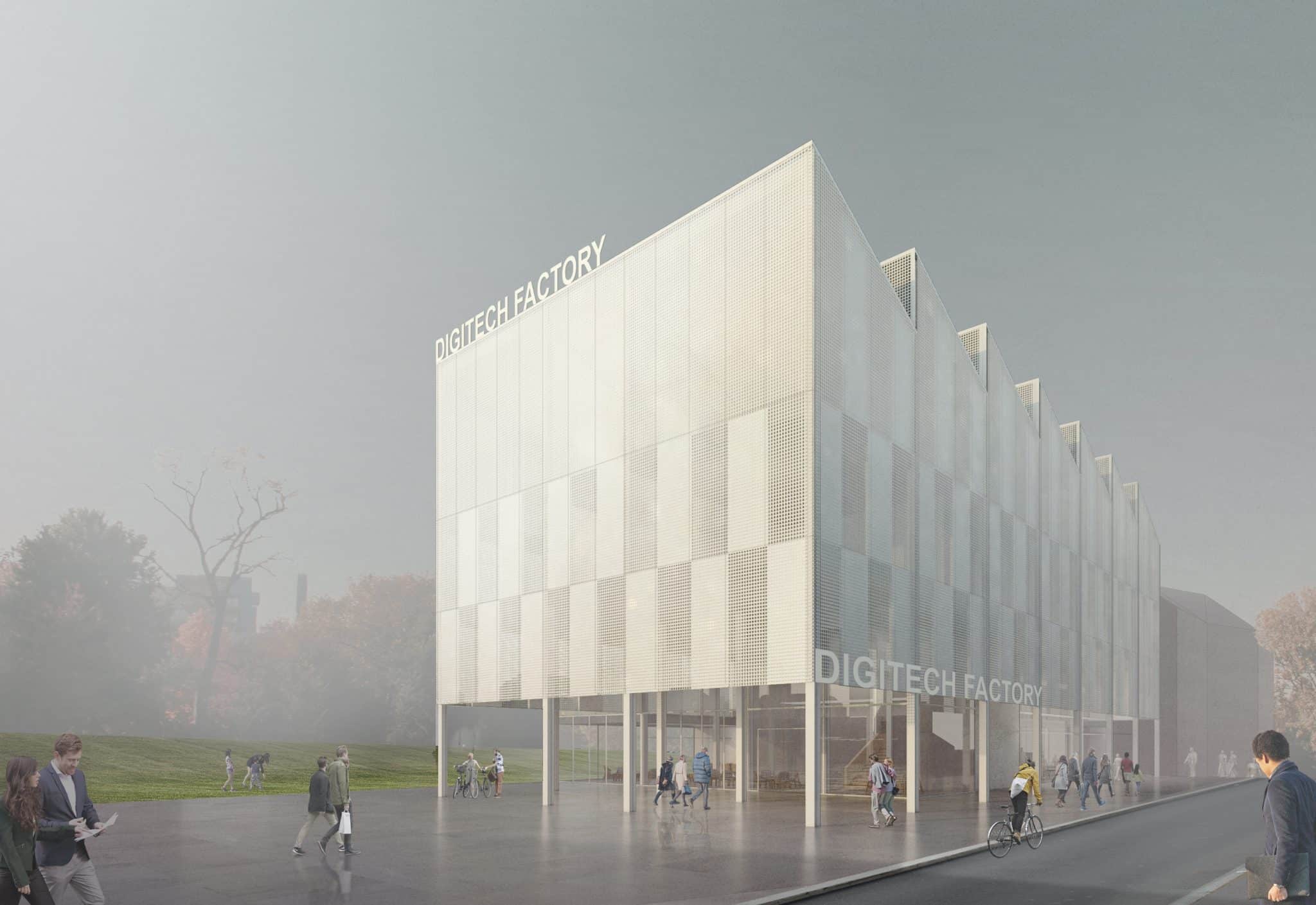
The Future of Construction is Here: Innovative Mixed Reality Technology Programme ‘constructXR’ Launched in Time for National Construction Week
One of Norwich’s leading design firms, XLWerks, has officially launched its brand new research and development programme ‘constructXR’; bringing the latest Mixed Reality holographic technology to local construction sites in East Anglia.
The technology allows workers to interact with three-dimensional structures in real-time through the use of a headset, providing a visualization of the finished project. XLWerks is one of the first design practices in the region to use Mixed Reality holographic technology on all of its projects.
The secret behind the technology is the recently released ‘Microsoft Hololens 2’ and the ‘Trimble Connect’. The team behind constructXR are currently experimenting with Mixed Reality holographic design (a ground-breaking combination of Virtual Reality and Augmented Reality) onsite at the new ‘DigiTech Factory’ project in Norwich City Centre.

constructXR is working alongside main contractors R G Carters, Coffey Architects, Clear Consulting and Design who are responsible for the Mechanical and Electrical Engineering and Structural Engineering firm Clancy Consulting, by training those involved in the use of the Microsoft Hololens in a live working environment, having recently installed the Substructure of the project. Construction week coincides with the launch of the next phase of the project, the Superstructure installation.

This technology will allow the UK construction sector, which in the past has been criticised of it’s lack of innovation and reluctance to embrace technology, to take the next step to producing more sustainable builds, with better coordination on-site and wider collaboration from all stakeholders.
James Lee Burgess, founder of XLWerks and the constructXR programme said: “We’re thrilled to be able to launch the use of this ground-breaking technology on a prestigious project such as the DigiTech factory. It’s great to be working alongside like-minded companies such as R G Carters and Clancy’s to start measuring the feasibility of this technology on-site.”
When asked about the other benefits of Mixed Reality holographic technology, James Lee added: “Mixed Reality technology will undoubtedly play a huge part in tackling the skills shortage, with Gen Z and the ‘digital natives’ tending to lean towards industries that embrace technology when considering their career paths. We hope that by demonstrating how this technology will change the face of construction, that we might attract more young talent to our industry.”